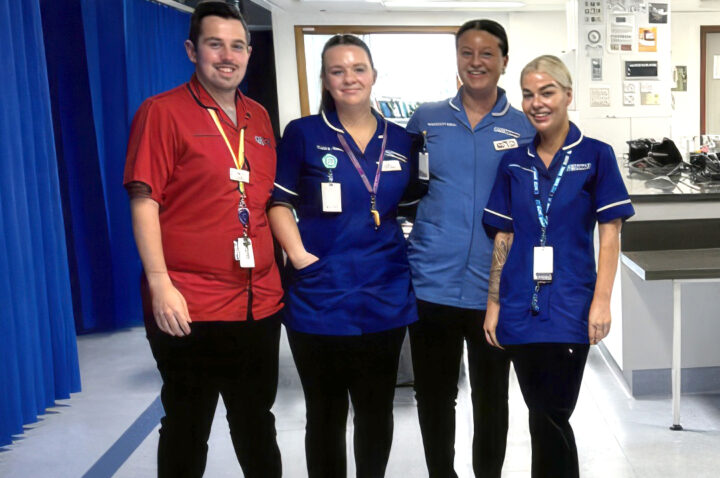Belfast Health & Social Care Trust – PATH

Summary
Belfast Health & Social Care Trust developed PATH (Psychiatric Assessment & Treatment Hub) as a proactive response to long waits for mental health admissions in Emergency Departments (ED). The service provides a dedicated five-space area, staffed 24/7 by mental health nurses, where patients can receive immediate assessment and intervention. Based on a general hospital site, PATH also supports patients presenting with increased risk in the community when no mental health bed is available, offering a safer and more responsive alternative to traditional pathways.
The Challenge
PATH, patients awaiting mental health admission often remained in ED or community settings that were not therapeutic or safe. This led to high demand for one-to-one continuous observations, which placed significant strain on community services, increased staff burnout, and created tension between teams. The reliance on agency staff to meet observation needs escalated costs, while concerns grew that patients were at risk of harm due to delays and unsuitable environments.
The Solution
The vision for the PATH service was developed and operationalised by a core leadership team, including the Unit Manager, Divisional Collective Leadership Team, the Service Manager, and Assistant Service Manager. They designed standard operating procedures, pathways into the service, and worked closely with hospital colleagues to establish medical cover and emergency protocols. Engagement was prioritised through meetings and workshops with staff across services, recognising existing pressures and addressing concerns. From the outset, data collection was built into the model to demonstrate impact and share progress transparently with stakeholders.
Results & Next Steps
PATH has delivered measurable improvements in patient care and system efficiency:
- 75% reduction in patients waiting in ED for psychiatric admission since November 2024
- 44% of patients assessed and treated in PATH are discharged back to community, prior to transfer to an acute mental health ward, thus reducing demand on acute beds.
- Improved staff wellbeing, with community teams able to focus on their core work rather than having to provide prolonged 1:1 observations.
- Strengthened relationships across ED, acute mental health, and community services
- Projected annual savings of reduced agency spend on the use of 1:1 observations.
Feedback from patients, carers, and staff highlights better experiences of mental health services. PATH has expanded to include therapies such as EMDR and daily structured activities. The Trust is exploring further development, including an Article 130 Place of Safety suite with Police partners, while other trusts and regulators have expressed interest in replicating the model.




